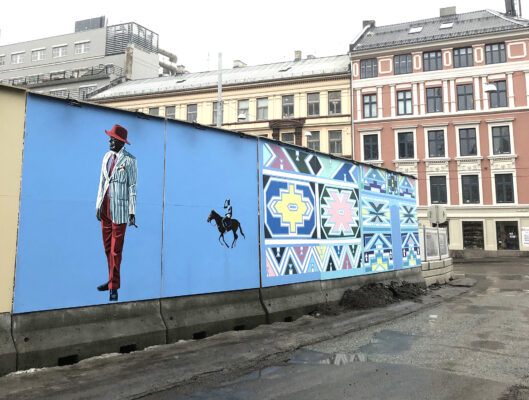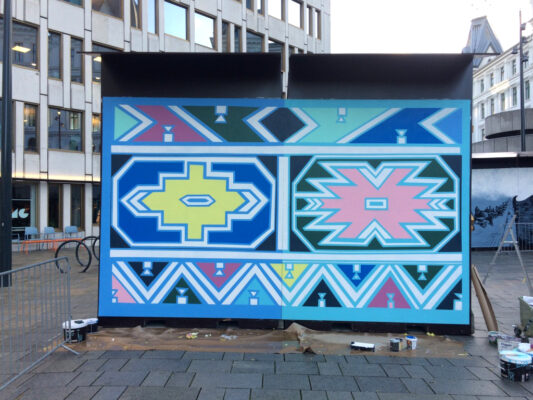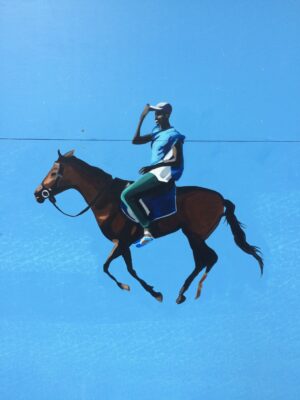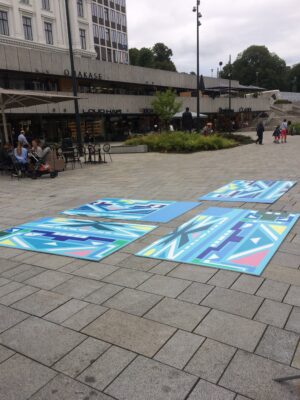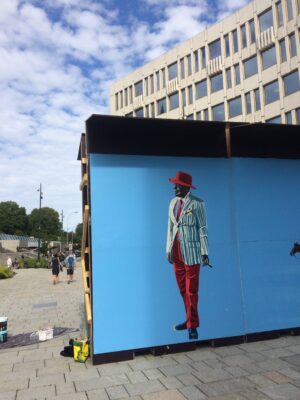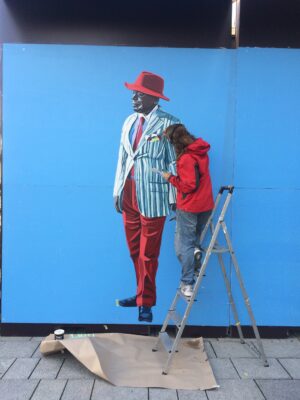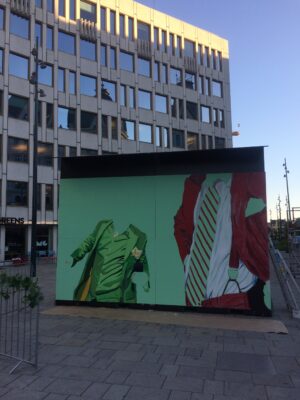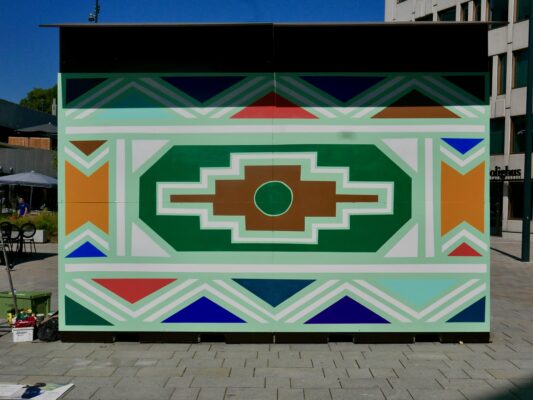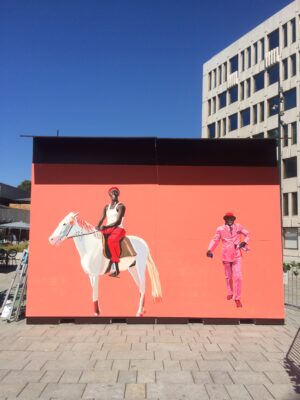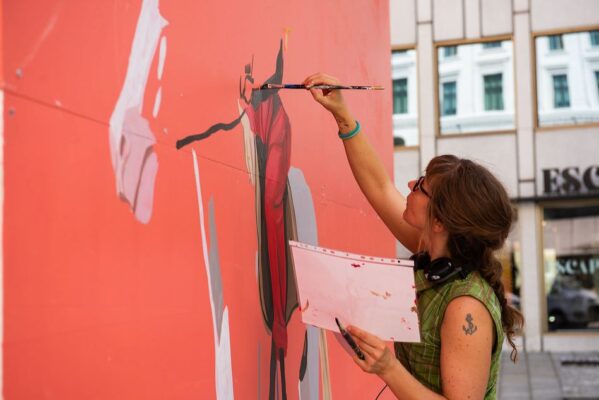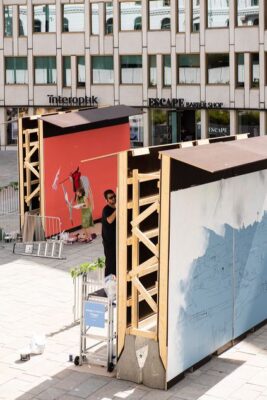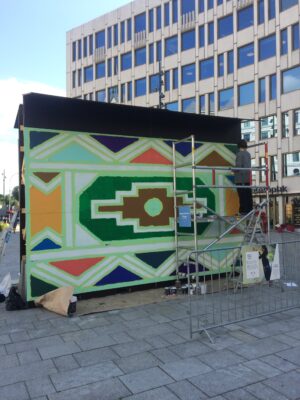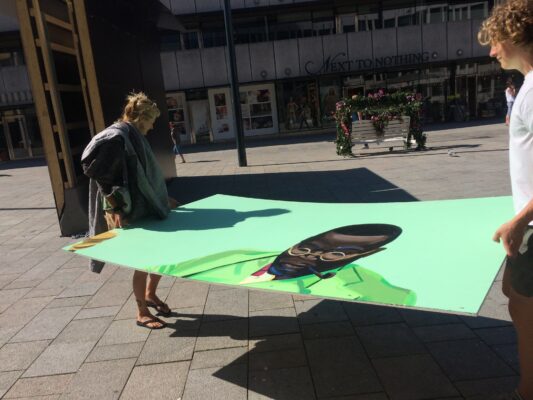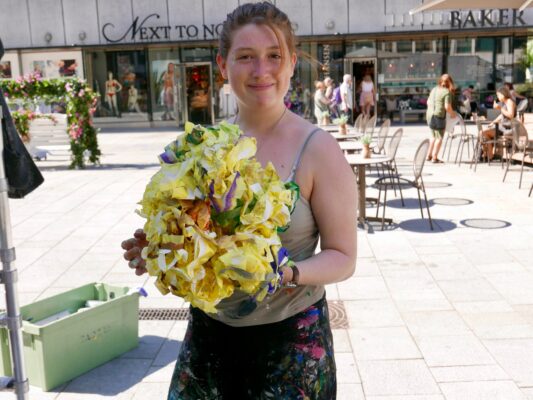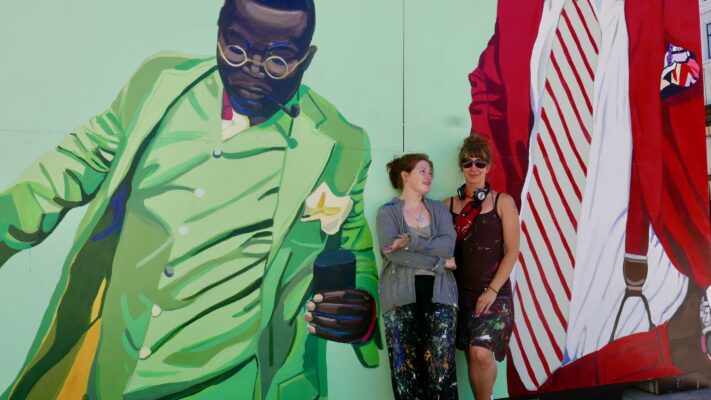Algeri, Tunis and Tripoli
Temporary Public Art Installation, Vika, Oslo
The project is inspired by Oslo’s former favela; the outlaw town that Vika was called in the mid-1850s, where both extreme poverty and lawlessness were part of everyday life. As a result, the streets were named after the wild Africa, and were popularly known as Algiers, Tunis, and Tripoli.
The project “Algeria, Tunis and Tripoli” is a site-specific and temporary artwork installed on construction fences in Vika, Oslo. The title is drawn from the area’s former street names—names given in the 19th century to some of the most vulnerable and impoverished neighborhoods in the capital. At the time, Vika was referred to as the “bandit town,” marked by lawlessness and poverty. Streets were named Algeria, Tunis, and Tripoli—references to what was then imagined as the wild and exotic Africa. With this project, Africa is brought back to Vika—this time with respect and artistic tribute.
The murals are inspired by the house façades of the Ndebele people in South Africa. Colorful, geometric patterns painted directly onto walls, created by women and carried by proud traditions. The paintings express family, tribal identity, and social status, and are an integral part of the everyday aesthetics in Ndebele society. These motifs have been reproduced at a 1:1 scale and transferred onto fence modules in Vika, paying tribute to a form of visual communication and resistance through aesthetics.
In parallel, La Sape – “Société des Ambianceurs et des Personnes Élégantes” – the flamboyant dandies of Brazzaville in Congo, is highlighted as another form of visual resistance. In the 1920s, lavish elegance and a vibrant suit culture became a quiet rebellion against structural poverty and colonial power.
The mural, measuring 45 meters in length and 3 meters in height, is currently installed in Ruseløkkveien and will later be moved to Munkedamsveien. The project is produced by the cultural agency Mesén as part of a broader urban revitalization in Vika. Artist assistant: Miriam Hald.



